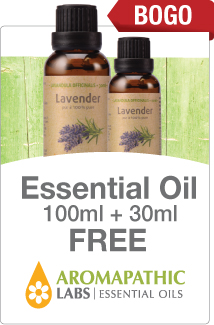
Vitamin D is great for those where there is a reduced amount of sun.
Vitamin D
Updated Apr. 08th, 2024
Although at one time 400IU was considered appropriate for supplementation, many health care practitioners are now recommending 1000-4000IU/day, with doses as high as 10,000IU/day still being considered safe and necessary depending on the condition and assuming you are under the supervision of a healthcare provider.
It is fair to say that we are only just beginning to understand the immense difference that vitamin D can make in terms of everyday health and disease prevention.
vitamin D plays an integral role in bone health, promoting our absorption of both calcium and phosphorus. For this reason, it is commonly used in the prevention and treatment of osteoporosis.
We are understanding more and more the importance that vitamin D is playing in supporting immune function. Vitamin D has the ability to modulate the immune response, rather than simply strengthen it. In cases of immune dysregulation (autoimmune disorders, cancer, psoriasis) it serves to balance the response, therefore decreasing the dangerous over-reaction to our own cells and tissues that is seen in many of these conditions. Research studying the use of vitamin D in influenza and various respiratory tract infections, has also showed some promising results. It is now considered one of the top supplements to use during cold and flu season to ward off the offending viruses and bacterium. Vitamin D deficiencies have been associated with an increased risk of influenza, as well as the common cold. The fat soluble vitamin has been shown to dramatically stimulate the expression of potent anti-microbial peptides, which exist in neutrophils, monocytes, natural killer cells, and in epithelial cells lining the respiratory tract. These cells play a major role in protecting the lung from infection.
Research on the effects that vitamin D status has on the incidence of cancer, particularly colorectal and other digestive system cancers, as well as female reproductive cancers, is also more than convincing. High vitamin D status was found to very significantly decrease the incidence of colorectal cancers in men (40%), as well as the incidence of other digestive system cancers. Vitamin D has been found to decrease proliferation, metastatic potential and angiogenesis of cancer cells, while simultaneously increasing differentiation and apoptosis.
Vitamin D has heart protective effects, as well. It has been shown to lower high blood pressure and is useful in the prevention of cardiovascular disease. Vitamin D is also being used in the management of Type II diabetes, as it has been shown to be involved in insulin secretion and glucose tolerance. Many mental disorders are now being correlated with vitamin D deficiency and supplementation is proving beneficial for many individuals suffering from depression, schizophrenia, seasonal effective disorder, manic/bipolar disorder and autism.
Vitamin D deficiency is considered less than 50 ng/ml of 25(OH)D, which is the active form of vitamin D in our bodies. Deficiency can occur with inadequate sun exposure, inadequate dietary intake, kidney or liver disease, and alcoholism. Elderly, dark-skinned, and obese populations, as well as those with fat malabsorption syndromes or inflammatory bowel disease, are also said to be at greater risk. Vitamin D deficiency causes rickets in children, leading to weak and deformed bones. In adults, deficiency can lead to osteomalacia, and osteoporosis, dental problems, muscle weakness and tooth decay.
When supplementing with Vitamin D, be sure to look for D3 (cholecalciferol) as it is significantly more efficient at raising 25(OH)D levels than the other form of D, D2 (ergocalciferol).






















I take Vitamin D every day and believe it actually helps keep me well and also helps keep my body in tip top form. I have taken the Vitamin D for a few years now and will continue to take these every day
Pour mon épouse et moi, retraités depuis maintenant 5 ans, et dans le groupe d'âge des +65 ans, la vitamine D-3 est comme du soleil en capsules. Durant les mois d'hiver, notre dose est plus élevée que durant les mois où nous profitons plus du soleil extérieur. Cette vitamine fait partie de notre régime depuis de nombreuses années et se joint à d'autres éléments de notre plan de santé. Nous avons appris d'une source d'expérience que cette vitamine contribue à conserver notre santé.
For my wife and I, retired for 5 years now, and in the 65+ age group, vitamin D-3 is like sunshine in capsules. During the winter months, our dose is higher than during the months when we benefit more from the outside sun. This vitamin has been part of our diet for many years and joins other elements of our health plan. We have learned from a source of experience that this vitamin helps maintain our health.
Bonjour Jean Marie,
C'est un excellent supplément pour les Canadiens toute l'année, mais surtout pendant les mois d'hiver mornes. Nous sommes heureux que vous puissiez en savoir plus sur votre complément de base avec nos articles. Un autre complément de base est la vitamine C, vous voudrez peut-être en savoir plus à ce sujet aussi.
https://www.nationalnutrition.ca/articles/supplements/vitamin-c/
Passez une bonne journée!
We supplement with Vitamin D3, due to living in Canada and not being able to get enough from the sun, especially in the winter!
This article reinforces the need for Vitamin D3 and it's interesting to learn a new word for Vitamin D2 = cholecalciferol!
Our doctor recommends 4000IU in the winter and 3000IU in the summer so it's great to read that health care practitioners are also recommending between 1000-4000IU/day.
We also take Vitamin D to help prevent cold/flu/viruses and strengthen the immune system. However, did not know that it also helps with the heart/blood pressure and much more!
Hello Angela,
Yes, sunshine in a bottle! Vitamin D supports many health concerns and can also enhance mood! It's a supplement many people, Canadians especially, benefit from. If you take a liquid form of vitamin D, you can take it under the tongue for optimal absorption ?
Have a healthy day!
I try to take Vitamin D on the daily because I know how important it is for you! This article really highlighted some key facts as well as the importance of Vitamin D which I love. I also didn't realize you could get vitamin D from food sources (apart from milk), I was mostly under the impression it was from the sun so this is amazing to read! Thank you so much for sharing this article, it was very informative and a great reminder! I just took my Vitamin D supplement right now :D
Hello,
Vitamin D does play a pivotal role in our health and well-being. Many foods contain vitamin D, but many don't get enough from diet alone and often supplement, especially in places like Canada where we don't get a lot of sun for part of the year. Basking in the sun during the warmer months is another great way to absorb vitamin D; however this can also lead to sun damage on the skin if the UV is strong. Glad you enjoyed this article.
Stay healthy & well!
Before 2020, I did not take a single vitamin/nutrient, but recently, I've learned the importance of natural supplements to support health, more specifically vitamin D.
This research took me down quite the rabbit hole and culminated with finding this great site to satisfy my nutrient needs.
Why vitamin d is a great supplement for immune support, but often isn't talked about for this use. There are some studies I found online that show how vitamin D supports immune health which is great to know for cold and flu season and during this past 1.5 years.
My daily regiment now includes:
5000-10000 vitamin d, magnesium, vitamin k, boron, taken together, 99mg potassium actually just added 2mg copper to this group.
30mg zinc, 500mg quercetin, 3000mg vitamin c and 350 mcg iodine, taken together
200mg CO Q-10, 20 mg PQQ, 8 compound vitamin e and 200 mcg Selenium, taken together.
Also fit in 2 600mg NAC, B complex and 5-10mg melatonin at bed
And take the magnesium, vitamin c and potassium 3 times a day.
Just learned this morning as well while researching kidney stones that I should be taking some vitamin A with my D and K :)
Hello Gary,
We are glad you found us and our articles can help you further learn about your health and ways to support any concerns. Thank you for sharing your regimen, you can learn about all of these individual supplements in our supplements article section as well:
https://www.nationalnutrition.ca/articles/supplements/
Have a healthy day!
I have been taking 8000 iu of Vitamin D daily. I have my levels tested regularly and this is how much it takes to keep me mid range of the recommended levels. Due to the lack of sunshine in this country during the fall to spring Vitamin D is the one supplement we really can't do without. Even my MD is now recognizing that 8000 is not too much.
Hello, Murray,
Thank you for sharing your experience with vitamin D, indeed it's a vitamin many people may need during the colder months where we don't get much sunshine in Canada. Since vitamin D isn't water-soluble, high doses of vitamin D should be taken upon the advice of your health care practitioner, so we are happy to hear you're working with yours to monitor your levels. Since you've been enjoying our articles, we think you'd like our healthy recipe section too, feel free to check them out:
https://www.nationalnutrition.ca/articles/healthy-recipes/
Stay healthy & well!